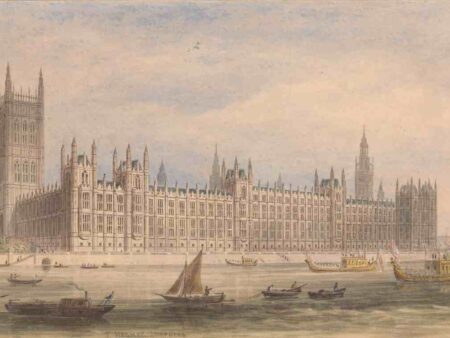By Yvonne Greenwood | Expected reading time 3 min
Last Updated: February 27, 2022
With the upcoming announcement of the changes to the 2005 Gambling Act expected any time now, it is an important time to set the record straight. Despite the seemingly never ending criticism to the way online gambling and online betting companies operate in the United Kingdom, it should be pointed out that the UK remains one of if not the safest countries in the UK to gamble in.
The UK remains one of only a few countries with a fully regulated gambling market. The UK Gambling Commission (UKGC) is the government body which regulates all gambling in the country. The UKGC has the power to award and cancel gambling licenses as well as the power to place fines on any operator which does not act according to safe gambling regulations.
Clearly, the Gambling Act does need to be updated. Since it was created in 2005, there has been an explosion in online gambling and most people do seem to agree that the laws relating to online gambling specifically need to be looked at. However, the dispute is about how stringent the laws should be.
HOW LIBERAL SHOULD GAMBLING LAWS BE?
Much of the media, especially mainstream, give the impression that gambling is a scourge on UK society and should be dealt with appropriately and quickly. But, problem gambling in the UK is lower than it ever has been and continues to decline with around 0.3% of people who gamble being recorded as having a problem, but you wouldn’t think so when reading the Daily Mail or The Guardian, two publications which are profoundly anti gambling.
The question is, do law makers need to put a curb on everybody in order to get to the 0.3% of gamblers who do have a problem? Or is there a way in which the government and gambling companies alike can try to help the problem gamblers or, even better, do everything possible to ensure players do not end up as problem gamblers?
Conservative MP Philip Davies told the WrightOnTheNail podcast that a balance of risk is important. Davies stated his personal view:
“We should let people who enjoy gambling get on with it and focus all of our efforts on finding this very small proportion of people who are either at risk of gambling addiction or who are there and do everything we can to support them.”
There are now suggestions that restrictions could be put in place which would mean that the average gambler would need a letter from his/her bank stating that they can afford to play. Or that gamblers will need a letter from their doctor stating that they are not mentally ill. Furthermore, there are rumours that no UK gambler will be allowed to gamble more then £200 per month.
In the same podcast, the presenter Emmet Kennedy argued that placing such draconian restriction on all gamblers in the UK “would drive people away from regulated and safe bookmaking and will push them into the dark corners of the web, which is the underground market and that can get extremely dangerous.”
SlotsHawk gambling writer Jon Bryan argues that the way in which gambling is being discussed around the UK press is detrimental too. With phrases such as ‘the normalisation of gambling’ giving the impression that it is abnormal to partake in gambling despite it being a part of human culture for multiple centuries. Jon goes on to state that if it continues, then there will be a profound impact on society.
There are certainly some aspects of the gambling industry which do need intervention, though. For example, betting companies and casinos are quick to shut down the accounts of players who are consistently winning. Whereas, losing players are often treated to special VIP schemes and offered other incentives such as free spins or free bets to keep them playing (and losing).
Online casinos and other leading betting companies have faced record fines in recent years for failing to sufficiently protect their customers. Without a doubt, there is responsibility on the betting industry to clean up their own acts and in fact, drive the standards.
SPEAKING TO ORDINARY PUNTERS
Jon Bryan thinks that discussions with the consumers, with ordinary punters have been missing from the whole debate on online gambling.
“Overall the betting community isn’t a coherent community like other groups. If people bet, or go to the horse races or go to the casino it’s just one of those things that they do, but they don’t adhere into a particular pressure group. I don’t think that the gambling minister Chris Philp has spent enough time speaking to the ordinary punter. He’s spoken to the industry but that’s different. But there has been a lack of the ordinary punter in all of this.”
Philip Davies goes on to state that:
“Politicians don’t make logical decisions they make political decisions and they make decisions based on what is best for them politically.”
It could be the case that, from the politicians perspective, taking a hard stance on gambling will lead to more votes compared to taking a soft stance on gambling, which may garner less votes with the general public. Although I personally do not understand that point of view. The British public are already tired of being told what to do following Covid restrictions, it is unlikely they will want the government to control whether they can or cannot gamble.
Our hope and wish is that any updates to the Gambling Act are based on trying to correct the components which are correctable. For example, operators are not allowed to limit/close accounts of winning players and problem gamblers should never be treated to bonuses and VIP programs.
If greater restrictions are placed on customers, then the government could be placing them into the dangerous grasp of unregulated gambling operators. The saying, the road to hell is paved with good intentions springs to mind.







